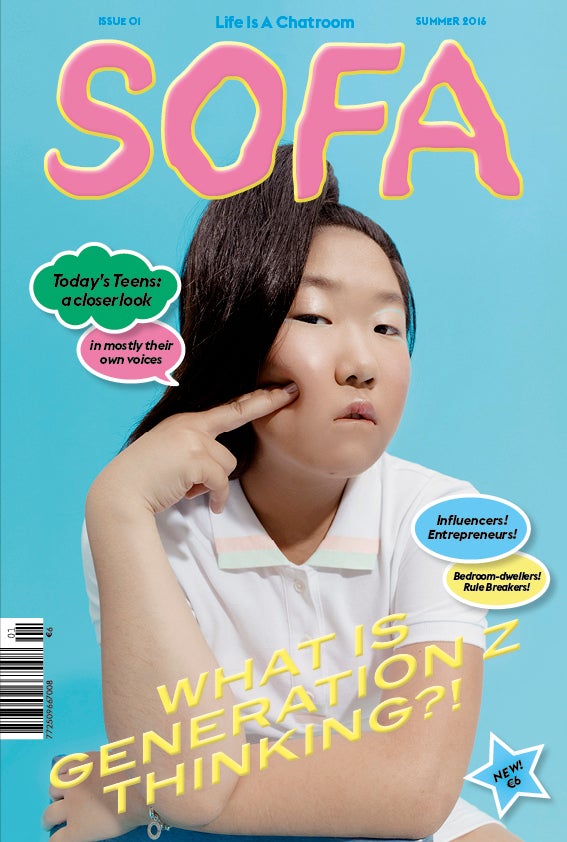 “You mean it’s going to be a real print object?!?!”
“You mean it’s going to be a real print object?!?!”
That was the reaction SOFA founder and publisher Ricarda Messners got from her 16-year-old co-publisher of an upcoming issue of the youth culture magazine. For Messners, it encapsulates what Gen Z is seeking.
“I’m more of the opinion that digitalization has strengthened Gen Z’s desire for something tangible.”
Messners launched SOFA as a way to help bridge the understanding gap between Gen Z and other generations, to dismantle “seemingly irreconcilable contrarieties and entrenched prejudices.”
She’s no stranger to publishing, having previously launched location-based magazine Flaneur, described as “a nomadic, independent magazine focusing on one street per issue.”
“The idea for the magazine came about with author Caia Hagel, whom Ricarda met during work on Flaneur‘s Montreal issue. On the sofa, of course—the place where people say what they really feel,” writes Vanessa Oberin in Freundevonfreunden. “Whether it’s a physical or a digital sofa, face-to-face or in a chat, it makes no real difference to them. Ricarda and Caia have cultivated an online friendship that despite the 6000-kilometer distance between them, is as wide-reaching as a relationship anchored in so-called real life.”
“With SOFA, we want to create an emphatic zone in which no one is disparaged for what he or she feels or says,” Messners explains.
“Gen Z is constantly confronted with the notion that they spend their lives staring at their phones and as such are unable to understand anything with meaning that goes beyond that,” Messners continues. “I’m more of the opinion that digitalization has strengthened their desire for something tangible.”
This flies in the face of common chatter about Gen Z, that they aren’t interested in anything “real,” print included. The truth is their digital heavy lives leave them with a lack of tactile media experiences, and they crave it just like their Millennial predecessors.
Born between 1995 and 20112, they represent close to 40% of all U.S. consumers, and number close to 73 million strong. And for publishers who are willing and able to speak their language, the rewards could be huge.
They place a high value on trust, and many are painfully aware of the dark side of social media. And they are finding their voices, individually and as a generation. The indie magazine model is a good way to capture a passionate fan base and build true engagement in print. We expect good things from SOFA, and wish Messners all the best as she continues to grow that brand.
